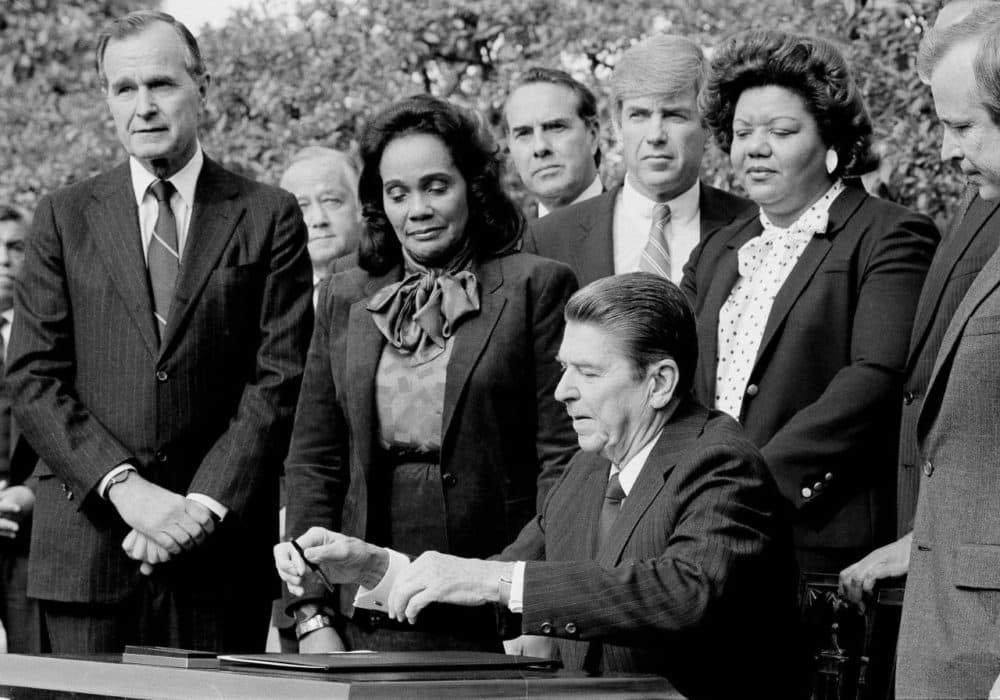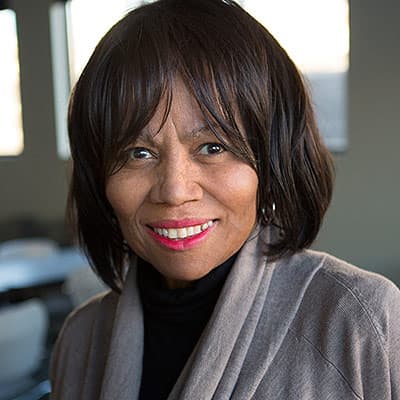Advertisement
A Look At The Pivotal Event That Helped Make MLK Day Possible
Resume
Had he lived, Dr. Martin Luther King Jr. would have turned 87 years old this year. On Monday, the nation marks the anniversary of his birth with the federal holiday declared in his honor.
Thirty-five years ago, a march and rally in Washington on King's birthday — Jan. 15, 1981 — made the holiday possible.
In 1981, Boston attorney Rev. Miniard Culpepper was a law student and in the crowd of more than 100,000 gathered in the nation's capital. They were rallying for a national holiday in honor of King.
“There was just euphoria in the air," said Culpepper, longtime pastor of the Pleasant Hill Baptist Church on Humboldt Avenue in Dorchester.
"It was electric," said Karl Nurse, senior producer of local programming at Boston's Ch. 5 at the time. "This was an event that was long in the making."
Long awaited because legislation to declare a holiday in memory of King had come before Congress every year for 13 years. Michigan Rep. John Conyers first introduced the bill just days after King's assassination in 1968. Getting it through Congress was another matter.
Petitions with millions of signatures urging lawmakers to pass the legislation were submitted. The effort really gained momentum after the 1981 rally in Washington.
Credit the legendary Stevie Wonder. He wrote his "Happy Birthday" song as a tribute to King. He performed that day and brought some really high profile friends — Diana Ross, Gladys Knight, Gil Scott-Heron.
Rev. Culpepper says he barely remembers the frigid conditions.
"How cold you were, and how much snow — those are the things that you just forget because they are not as significant as the actual event," he said. "And I'm sure we'll brave many more cold days to make sure that this country stays one that has doors open and an open heart and open minds to all people."
For Nurse, the day was about capturing all the emotion, all the music.
"When we got to the stage finally. We set up our cameras and he began to sing, the place just went crazy. I mean, people were dancing," he said.
Wonder's "Happy Birthday" became an anthem for the movement. Wonder used proceeds from it to help defray the costs of the Washington rally. He funded a similar event the following year as well as an ongoing campaign for a King holiday.
It finally passed Congress and in 1983, President Ronald Reagan, who had originally opposed the holiday as too costly, signed legislation making the third Monday in January Martin Luther King Day, starting in 1986.
Rev. Culpepper in Boston says while that marked a pivotal point in racial progress, "Never would I have thought that we would find ourselves dealing with the overt, and in some ways outright and disrespectful racism that we see in the country today. It’s just amazing that it seems that we thought we had gotten past a certain point of racism but in reality we hadn’t and we find ourselves fighting in some of the same battles that we thought we had won.”
A similar sentiment from Nurse: "America has a long way to go to be all that it can be, and what's wonderful about it is that it's all possible."
It took a while but the King Holiday is now recognized as a national day of service in all 50 states. Massachusetts was among the first to fully recognize it.
This article was originally published on January 15, 2016.
This segment aired on January 15, 2016.
